
“Esports aren’t real sports.” Is a phrase you’ve probably heard before.
Perhaps your dad casually said it after driving back from his darts game. You know, darts. A real man's sport. Really physical.
Well, you can link your dad to this article because esports is set to become the biggest sport out there! All you have to do is take a look at the numbers;
Let’s start with the National Football League, as Football is the most popular sport. The NFL was founded in 1920, and it’s blown up in the 100 years it’s been around. Or at least, that’s how it seems.
Video games have been with us since the 1970s, but let’s be honest: Pong would have made for an awful Esport.
There were a few small tournaments back in the day, but the prize pool wasn’t brilliant. Still, let us be generous and say that Esports has been around since the ’80s. That’s still only 40 years of existence.
And, in 40 years, esports has gained 4 times the number of viewers than the NFL, which has been around for over double the time. Not only that, but League of Legends tournaments alone draw in more viewers than the MLB, NBA, and the NHL!
Plus, with the coronavirus making it hard for people to play basketball and football, esports is rising faster than ever. Even when we’re past this pandemic, fans will be less eager to gather in large crowds than they once were. And, with multiple generations of gamers now working, more and more are going to turn to this wonderful pastime.
How silly of us though, we never actually explained what Esports is. Let’s fix that right now.
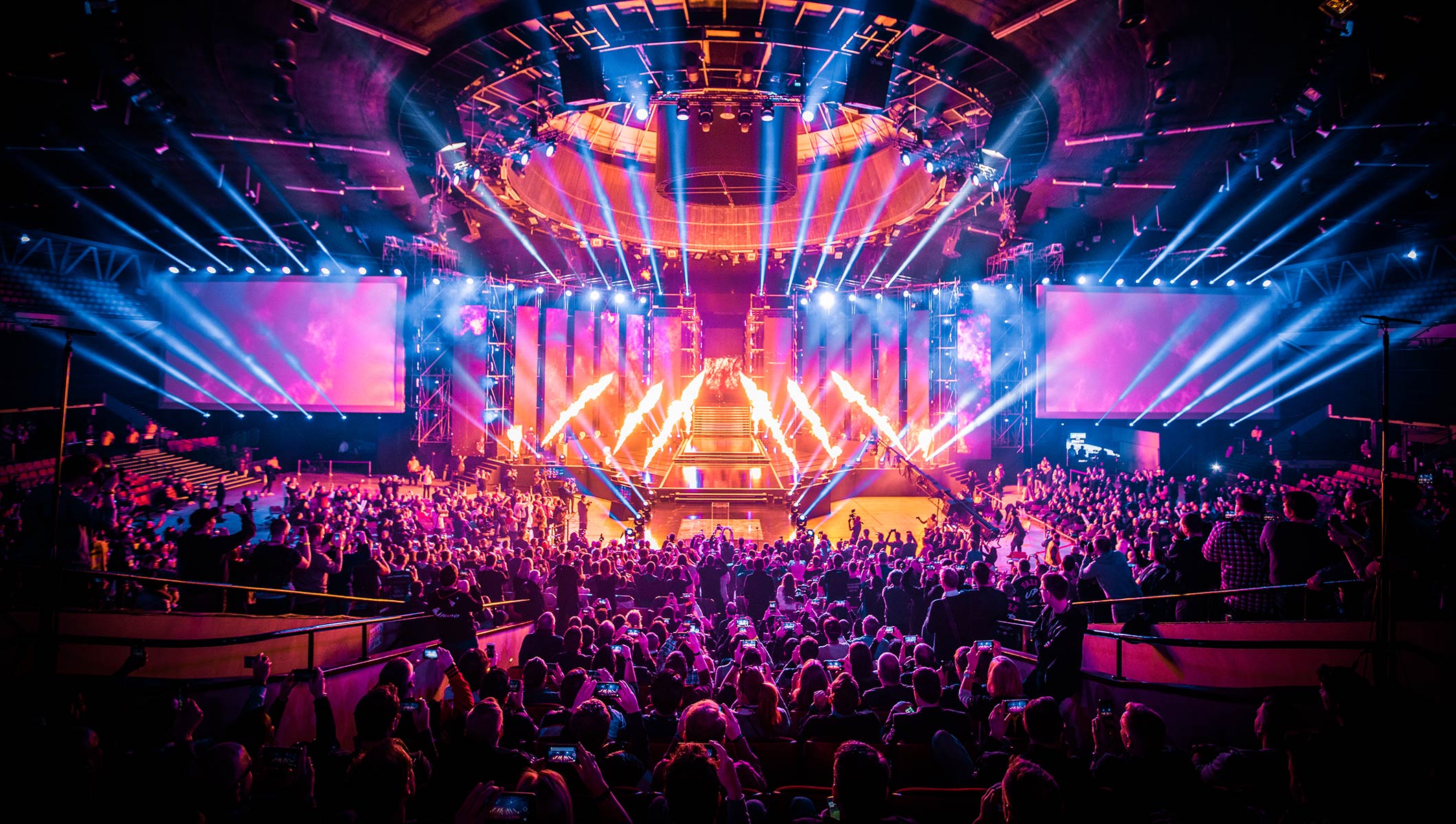
“E” stands for electronic, and “sports” stands for, well, we won’t insult your intelligence by explaining that one. That’s it. It really is as simple as it seems. Esports is gaming at the competitive level, with players facing off against opposing teams in the pursuit of fame and money.
Professional esports players are taken on by organizations to play for them, in the same way a football team does. These players then enter tournaments where they stand to earn thousands of dollars. Some lucky players could even win millions.
Unlike games such as Football and Basketball, however, esports organizations can have multiple teams under them. Let’s use the organization “Cloud9” as an example. They made a name for themselves playing League of Legends, but now have teams playing Smite, Counterstrike, and more.
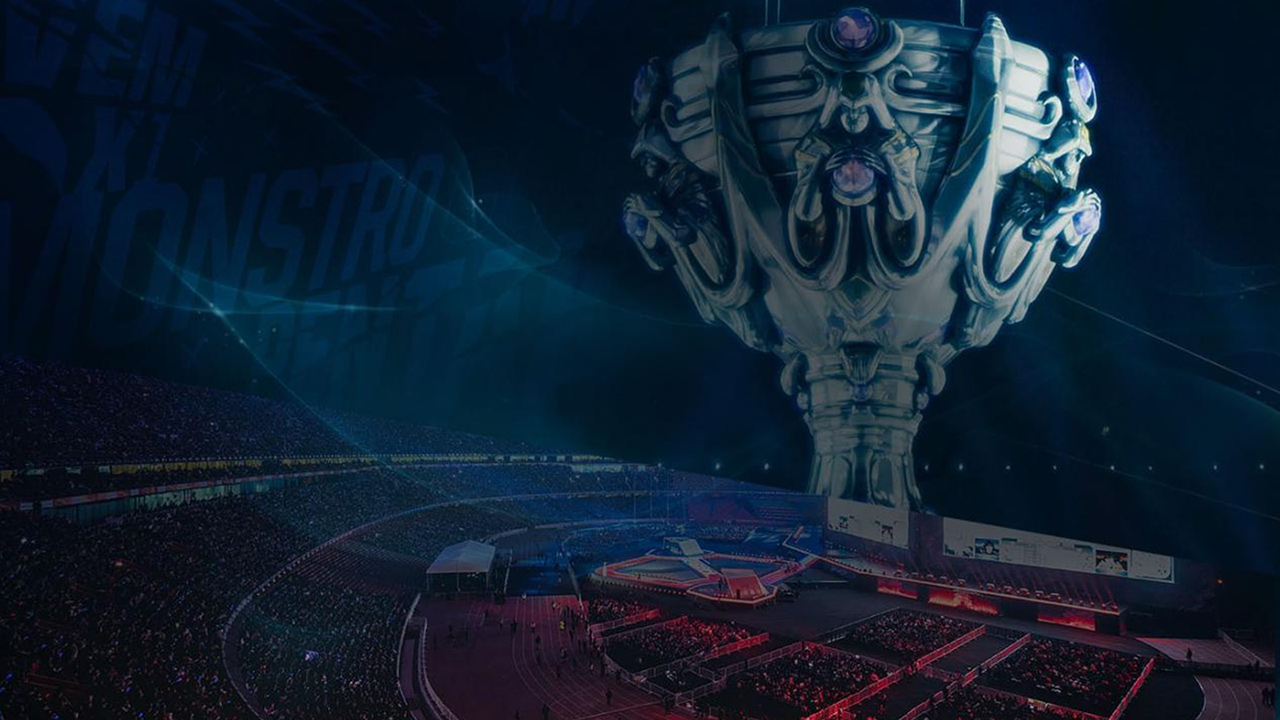
In theory, any multiplayer game could become an esport, but that doesn’t mean that every game should.
Still, 3 key traits turn a game from something folks play to unwind from work into something crowds scream over.
Imagine if, in football, players softly passed the ball back and forth to each other. That might be relaxing for them, but it’s not entertaining for you. When you add a drop of competitiveness to a game, you create conflict, you create a dramatic question: Who will win?
Surely a game that’s goal is to relax players could never be an esport? Well, it turns out that it can. Stardew Valley really is made to chill you out though. Getting competitive with it would ruin the experience for us.
We won’t name any names, but some games out there have made awful balance changes. No one is going to invest thousands of hours into an unbalanced mess, and if you have no pros, you have no esport.
Of course, no game is, but when you have a few Champions that are waaay better than the rest? Well, that makes for a dull game to watch.
If the players are bored, the viewers are asleep. Without a burning passion for the game, no one is going to sit through the grindier matches. Your players need to love the game, or they won’t become pros.
Although if any game devs are reading this, just make your game fun. It doesn’t matter if you want it to be competitive or not, fun has to come first.
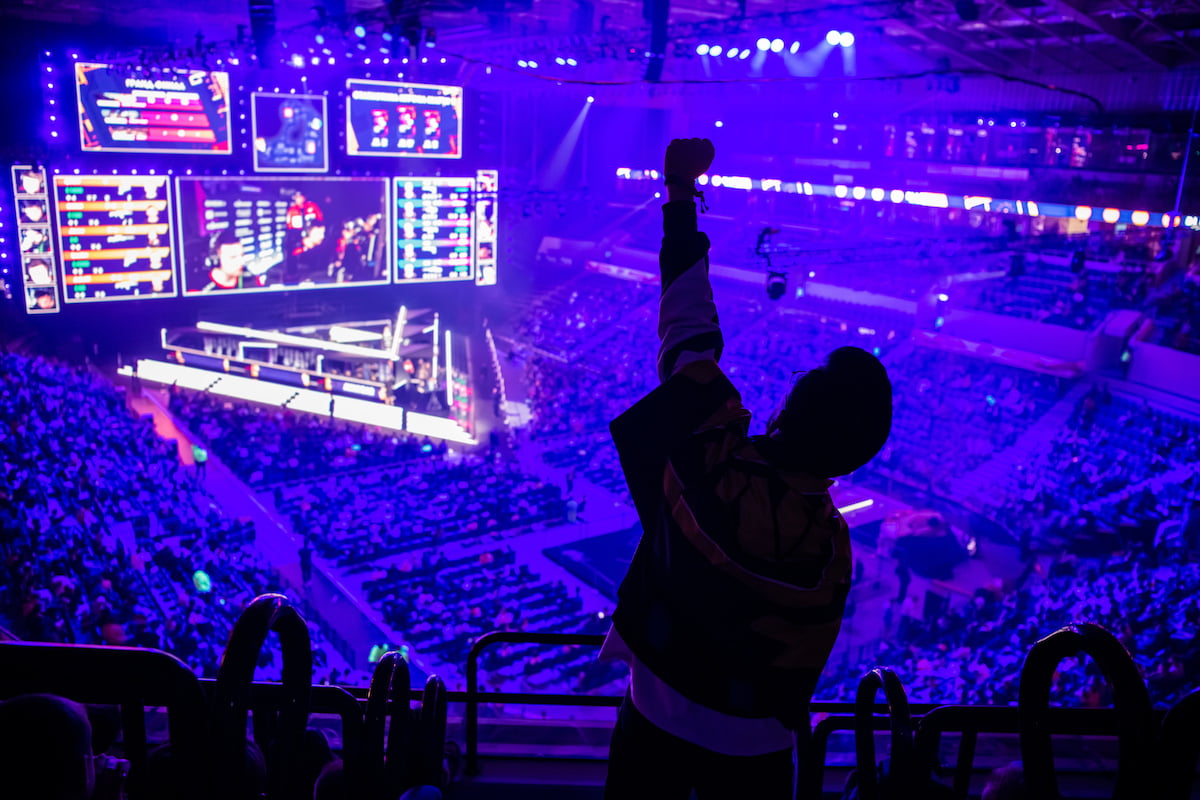
League of Legends is the biggest game in the world, but not every big game is an esport. Take Minecraft for instance – it’s incredibly popular, but you’d never have competitive build battles – probably.
Of course, League of Legends is an esport. In fact, it’s the biggest esport in history, and there are a few reasons for that.
First off, there’s no cost for entry! This means that anyone could download the game, no matter their experience level. For many people, their first few matches of League of Legends could be their first look at esports.
This is especially true for younger people who don’t have as much money to funnel into games such as Overwatch.
Let’s say Riot converts 1 percent of new players into pros because they offered the game for free. Well, that’s an incredible amount of players that other titles don’t have.
Another reason League of Legends does so well is that it combines 2 elements of other esport games. It takes the mechanical skill of a Call of Duty player to be good at the game. On the other hand, players also need some of the strategic thinking found in RTS games. Granted, you don’t need quite as much as an RTS game, but at the highest level of play, LoL is a game for smart people.
Plenty of people earn thousands playing esports – in fact, the best of the best are earning millions. While many annoyed parents utter the phrase;
“You’ll never make money playing video games.”
We can safely say that it’s just not true.
How do esport athletes make so much money though? After all, relying on cash prizes alone isn’t a great plan.
Just like with physical sports, companies are keen to get their ads in front of people. Most competitive games out there have Redbull as a sponsor, but there are other big brands, such as Audi and Nissan.
Over 1 billion dollars is funneled into tournaments by sponsors each year. For esports athletes, it’s one of their main sources of income.
The bigger the tournament, the bigger the prize. The best players can bring home up to 200 thousand dollars from just one match. Some of the biggest esports tournaments, such as the Dota 2 International, earn the winning team 10 million dollars.
Most teams offer their players regular salaries like any normal job. The average is $3,000-to-$5,000 a month.
Some teams even offer retirement plans, along with healthcare and other benefits!
While many Twitch streamers can support themselves from subscriptions alone – which they can charge up to $4.99 per month for – donations also play a big part. If you’re lucky, you could receive 10’s of thousands of dollars, as seen in these heartwarming videos.
Some pros stream on other platforms, but none are as big as Twitch. That being said, many streamers are leaving Twitch, so who knows what the future will bring. If you want to check the biggest proplayers who stream right now on twitch read our best lol streamers article.
If people like you enough, they’ll fork over plenty of cash to get a hoodie with your name on it. Celebrities have been selling branded perfume since perfume was a thing, so this really is no surprise. What is surprising, however, is that some teams are selling online merchandise.
The cost of creating these in-game items is minimal. Sure, there’s the initial cost of developing the item, but once that’s done, it’s effectively free to produce!
And, just like with real-life merchandising, brands are charging people to advertise for them. Merchandising is worth over $103 million in revenue, and will only continue to grow higher as esports becomes more popular.
As you can tell, the best esports players bring in the big bucks. Could you get into esports though? While it is a dream for many players to make their living out of playing, not every game is made for esports.
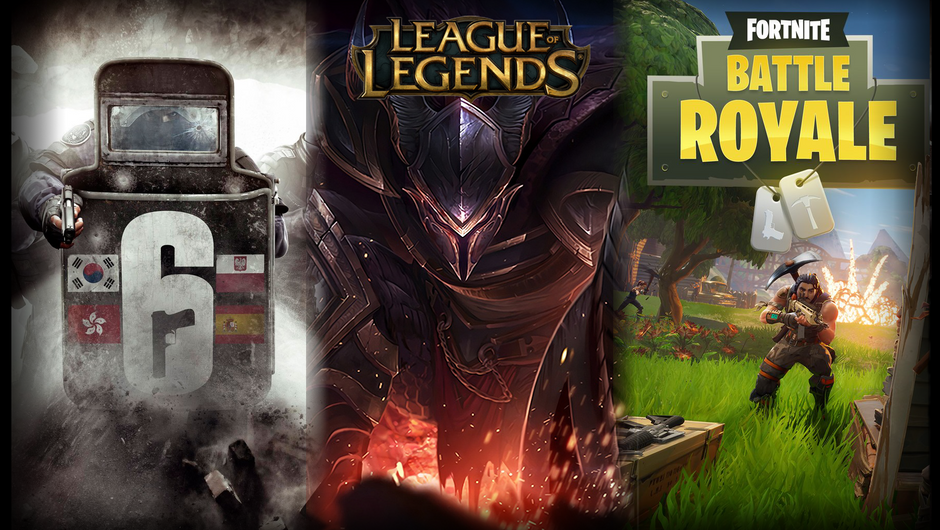
Some genres seem made for competitive play. The obvious choice is MOBA games, but don’t worry if you aren’t into Dota! There are many other options out there.
The draw of a first-person shooter (FPS) game is that they’re simple. A brave comment, we know.
But before you reach for your pitchforks and torches, hear us out;
FPS games are easy to get into. Your only real goal is to kill while not getting killed. Sure, mastering each gun is useful, as is knowing your way around a map, but let’s compare that to LoL.
In most MOBA games, you need to keep track of an overwhelming amount of info. This includes the items you should build and the hundreds of Champions that you’ll be facing. Then of course there’s ward placement and Jungle pathing, along with much more.
In games like Call of Duty, the focus is much more on mechanical skill as opposed to game knowledge. Think of Football;
All you need to start is a foot and a ball. You kick the ball, and voila – you’re playing football. Easy, right?
In both Football and FPS esports, however, there’s much hidden knowledge. That’s where some of the competitive draw comes from.
Some great examples of FPS esport games include;
It doesn’t matter if you’re a hardcore console fan or prefer PC. There’s plenty of opportunities for cross-platform play, and you just don’t get that with MOBA’s or RTS games.
RTS games have been a part of PC gaming for decades. It’s given us such great titles as “Age of Empires” and the “Warcraft” series – which eventually spawned the incredibly popular MOBA genre.
If you’re in a game where multiple players slam their armies against each other, it’s probably an RTS. First, though, you must build that army, upgrade your units, and construct buildings. With most RTS games, players will fight over resources as they struggle to gain control of the map.
This could be compared to chess in a couple of ways.
First, there is next to no mechanical skill in an RTS game. Players rely entirely on their brains to lead them to victory, and if a player loses, it’s down to his or her skill level. There is usually no blaming teammates, which appeals to people who don’t want their fate in someone else's grubby hands.
And, as the name suggests, everything is happening in real-time. This gives the game a sense of urgency and unease. After all, who knows what might be lurking just beyond the fog of war?
RTS games aren’t as popular as an esport as they once were, however. To many people, the Moba has an even greater sense of urgency, although the two have some similarities.
The Moba genre has benefits of both the RTS genre and the FPS genre, with few of the cons. This combining of mechanical and mental elements is one of the reasons the Moba is popular as an esport; but there’s more to it.
People need to care about the game before they become fans. The average Moba costs nothing to play, which means everyone might as well give it a go – what do they have to lose?
Another reason the Moba genre is so popular is because it’s a team game. Friends get their friends to play because they don’t want a toxic team. Much better to have your friends yell at you for being unskilled.
Skill is the most important thing in a Moba. That’s not to say there’s no RNG, but let’s break it down;
In a game like League of Legends, the only real randomness is the type of elemental Dragons that spawn – and a little bit of crit chance. That’s nothing compared to one of Riot’s other games.
In Teamfight Tactics, you might play the best you ever have, yet your opponent gets lucky with a level 3 Champion. The level 3 Champion that you needed to complete the perfect build.
A massive mix of factors lead to the rapid rise of esports, but it wouldn’t be where it is without the tournaments.
Modern esports tournaments use a variety of different formats, as decided by the game creators. This can be a little confusing if you’re used to sports like Football, which uses a common Championship standard.
Understanding how tournaments work can make watching esports a whole lot easier to understand.
In Esports, the series ends after one side has secured a set amount of victories. If you’re a fan of Tennis, then you will recognize this. Of course, in tennis, one side only needs 2 sets to win a series. In Esports, things are a little crazier.
Best-of-1 (bo1) — 1 victory required to win the series.
Best-of 2(bo2) — 2 victories required to take the series. If both sides win 1 game, the series ends in a draw.
Best-of-3(bo3) — 2 victories needed to win the series.
Best-of-5(bo5) — 3 wins are required to take the series. The of Dota 2 finals are an example of this.
Best-of-7(bo7) — The series ends when one side takes 5 victories. Rocket League is the most popular example of this.
Any big Esports tournament will have a group stage to weed out the weak. By the time the playoffs roll around, only the best of the best remain. It also helps build tension. If you’ve watched your favorite team struggle through the group stages, you’re more likely to be upset when they lose – or thrilled when they win.
There are 3 different formats;
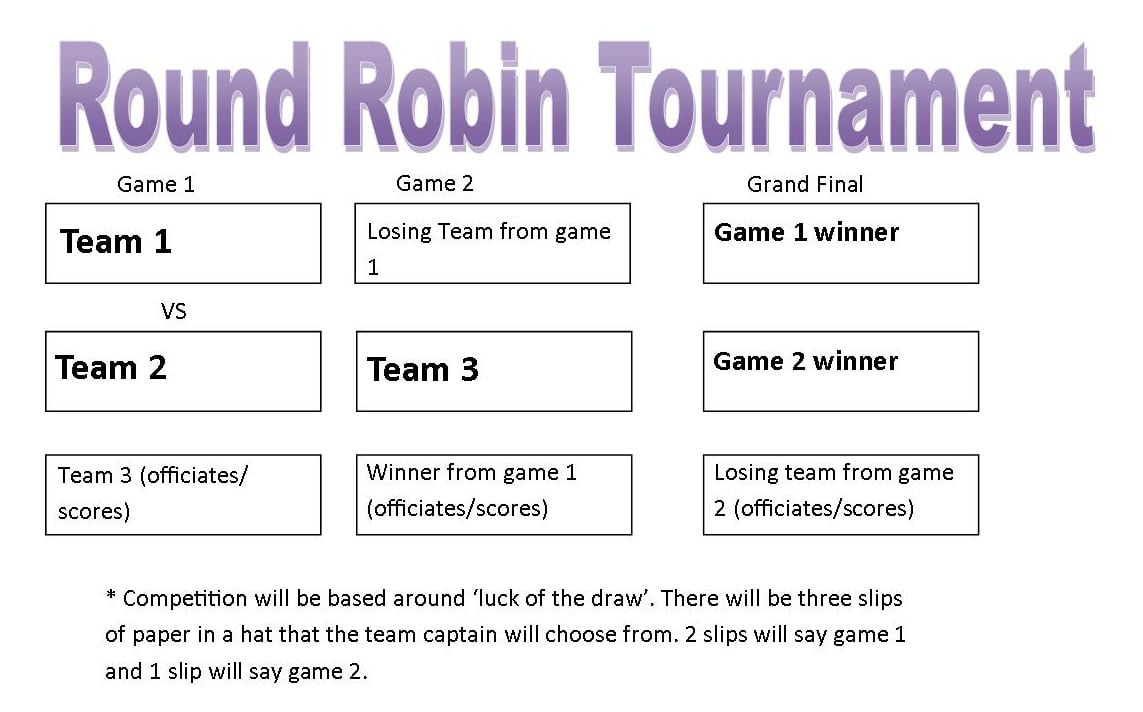
In this system, every team plays 1 or 2 bo1 or bo3 with each other. If you’re looking for an example of this from more physical sports, the UEFA Champions League is perfect.
Once all teams have faced off, the winners proceed to the next leg of the competition. As for the losers, they are unfortunately sent home.
The main benefit of this system is that there are plenty of matches for fans to sink their teeth into. Another name for the round-robin system is “All vs all” as every team ends up facing each other. More matches seem like a great thing, but there’s a limit.
The main issue arises when one team has earned their spot in the next stage, while the other team is out. There’s no fun in watching them play because there are no stakes. One team is guaranteed to move on, while the other isn’t.
The Round-Robin format is used in a variety of esports, Dota 2 being the most popular of them.
You’re likely to see this system in groups of four teams, which are then split into 2 separate groups.
Both groups face each off and the winning teams of both groups duke it out in a Bo2 series. The winning team takes the first spot.
Teams who lose their first match then do battle, with the defeated team getting last place. And finally, the two remaining teams play for 2nd and 3rd place.
The GSL System is one of the most popular systems, as there’s never any pointless match’s. Every team can influence the tournament, no matter how many games they’ve lost. A popular example of the GSL System is in CS:GO tournaments.
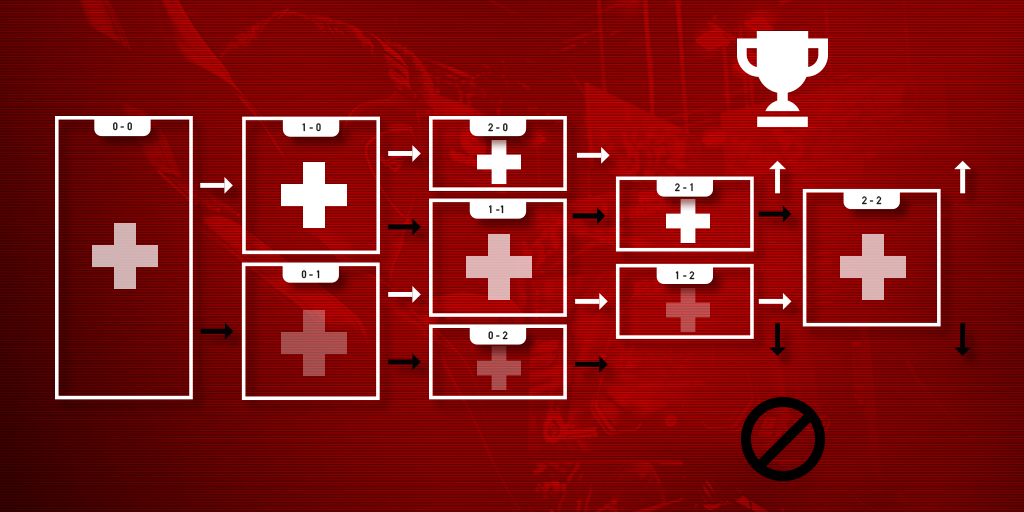
The Swiss System is usually used in situations where a GSL or Round-robin is not possible. The term itself was first used in Chess during a tournament in Zurich – which is where it gets its name. These days, the Swiss System is used in everything from Scrabble to Wargames, and, of course, esports.
In the Swiss system, all teams are divided into couples, and each team can either go 2-0, 1-1, or 0-2.
As an example, let’s say that there are 16 teams in total. Each team will play 3 games, and depending on the result, will either advance or be eliminated. It’s a simple system, but some claim that it’s ineffective, as there is a lack of seeding. Without enough seeding, players might end up fighting multiple dominant teams back to back. Likewise, a team could end up facing multiple easy matchups.
This system works like a classic tournament. If you’ve ever seen the Olympics, then you know what we’re talking about! There are two different kinds of playoffs though, which while similar, can make quite a different;
Single Elimination Bracket
Teams that have made it to the bracket are placed into a bracket depending on their seed. Each team faces off against an opponent of an equivalent skill level. As with other systems, the winning team advances, while the losing team is eliminated. One bracket stage generally uses a BO3 or BO5 system.
Double Elimination Bracket
The double bracket system works much like the single bracket, with one key difference;
While all teams are entered in the upper bracket, those who lose aren’t eliminated. Instead, they drop down into the lower bracket. Eventually, both brackets collide in the grand final. Of course, if a team loses a game in the lower bracket, then that’s it – they’re out of the tournament.
What’s next for esports tournaments? Well, if they keep growing at the rate they are at the moment, it won’t be long before they beat out regular sports! What ever happens next, we’re sure it’s going to be big.
